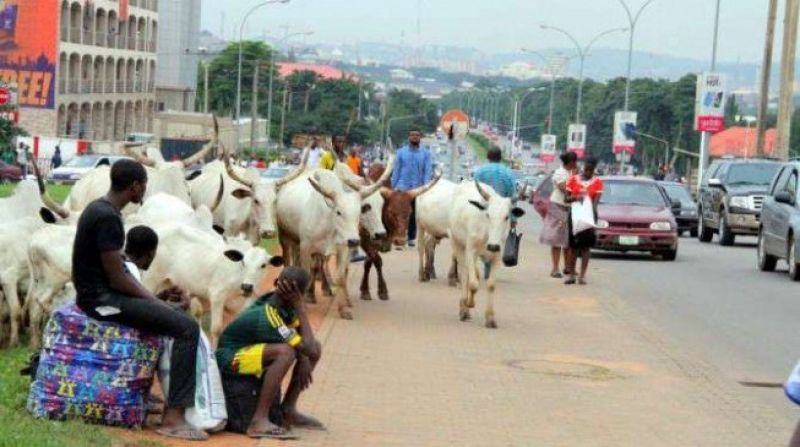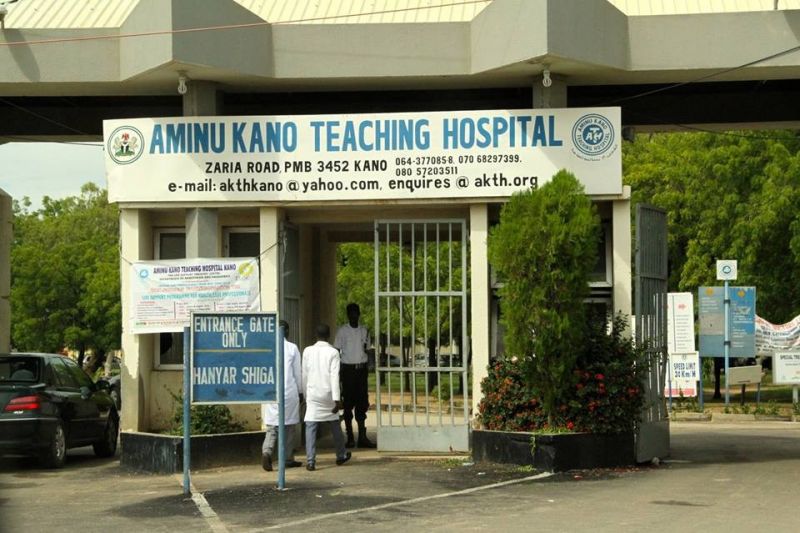Herdsmen-Farmers’ Clash : FG To Create Ranches In Oyo, Benue, Ebonyi, Edo, Others
Posted by Admin | 6 years ago | 2,087 times

The Federal Government has announced plans to establish large ranches in 10 pilot states of Adamawa, Benue, Ebonyi, Edo, Kaduna, Nasarawa, Oyo, Plateau, Taraba and Zamfara.
This initiative is part of a new roadmap, tagged ‘The National Livestock Transformational Plan’ aimed at finding lasting solution to farmers-herders’ conflicts in different parts of the country.
Andrew Kwasari, Technical Adviser to the National Economic Council (NEC), who made the disclosure on Tuesday in Abuja said, “A ranch design plan has been proposed in models of various sizes clustered in 94 locations in the 10 pilot states.”
He added, “The government intends to transition pastoralism to ranching in order to reduce the struggle for common resources.”
He explained that the proposed ranch size models are: cluster 30, 60, 150 and 300 cows ranch models in a location within the donated gazetted grazing reserves; and a minimum 1000 cows breeder ranch in 7 of the 10 pilot states.
“Total spending over the 10-year period is slightly in excess of N179 billion. FGN-States funding is meant for the first 3 years in the pilot phase, totaling about N70 billion.”
In his presentation, Kwasari stressed that the new plan is built on six key pillars.
These are: economic investment; conflict resolution; law and order; humanitarian relief; information education and strategic communication; and cross-cutting issues.
According to the plan, the economic investment pillar would support and strengthen the development of market-driven ranches in seven pilot states for improved livestock productivity through breed (genetic) improvement and pasture production, in addition to efficient land and water productivity.
The government also said it would rebuild social capital at the community level to promote mutual trust, confidence building and consolidate the peace process, with regards to the conflict resolution pillar.
The plan also showed that the law and order pillar would support the strengthening of legal frameworks for improving livestock production, peace and harmony.
The fourth pillar, humanitarian relief, will focus on rebuilding and reconstructing of common facilities – worship places, markets and individual homes that have been destroyed.
The fifth pillar would aid information, education and strategic communication on the development of grazing reserves in the frontline states, and mitigate the consequences of these conflicts such as wanton loss of lives, destruction of properties, including schools and facilities.
The ‘cross-cutting’ issues pillar identifies various cross-cutting issues necessary to realise the objectives of the programme, which include monitoring and evaluation; and research to contribute evidence base in programme implementation; as well as gender mainstreaming.
Kwasari added that the plan emerged as recommendations from the 2017 livestock conference attended by the National Economic Council (NEC) and Federal Ministry of Agriculture and Rural Development.
The NEC is headed by Vice President Yemi Osinbajo, and includes all state governors as well as some ministers as members.
Chief Audu Ogbe, Minister of Agriculture, who, alongside several public officials, attended the presentation event said the initiative was aimed at putting paid to herders-farmers’ crisis.
“We want to bring this crisis to an end. We will begin action in a matter of days,” he said, adding that nomadic herding was not sustainable and Nigeria must adopt ranching.
Meanwhile, Samuel Ortom, Benue State governor, who also attended the presentation event, stressed that apart from implementing the new plan, the Federal Government must ensure that perpetrators of the killings in the state are arrested and prosecuted.
He also urged Mansur Dan-Ali, Minister of Defence, to apologise to Nigerians for demanding the suspension of anti-grazing law in the various states where the law has been enacted.
It would be recalled that Dan-Ali, on June 5, called for the suspension of the law, which is operational in Benue, Taraba and Ekiti states.
Ortom said, “I wonder if the minister has had time to read the newspapers, he would have felt the feelings of Nigerians for him calling for the suspension of a legitimate law.
“It is not good enough, it is casting the government in bad light and the minister of the federal republic should represent the interest of Nigerians. He should not be the mouthpiece of Miyetti Allah in a conflict involving Nigerians.
“Coming from a security council meeting and making such statements, some people took it as the opinion of the security council. He needs to apologise to Nigerians.”
The new roadmap is coming against the backdrop of a farmers-herders’ crises that have recorded the killing of hundreds of people in 2018 alone by nomadic herdsmen in mostly the Middle-Belt states of Benue, Plateau, and Kaduna.
Aside the loss of lives, the federal government has stated that the country loses about $14 billion (N5.04 trillion) annually to the crises.
Readers Comments
comment(s)
No comments yet. Be the first to post comment.








